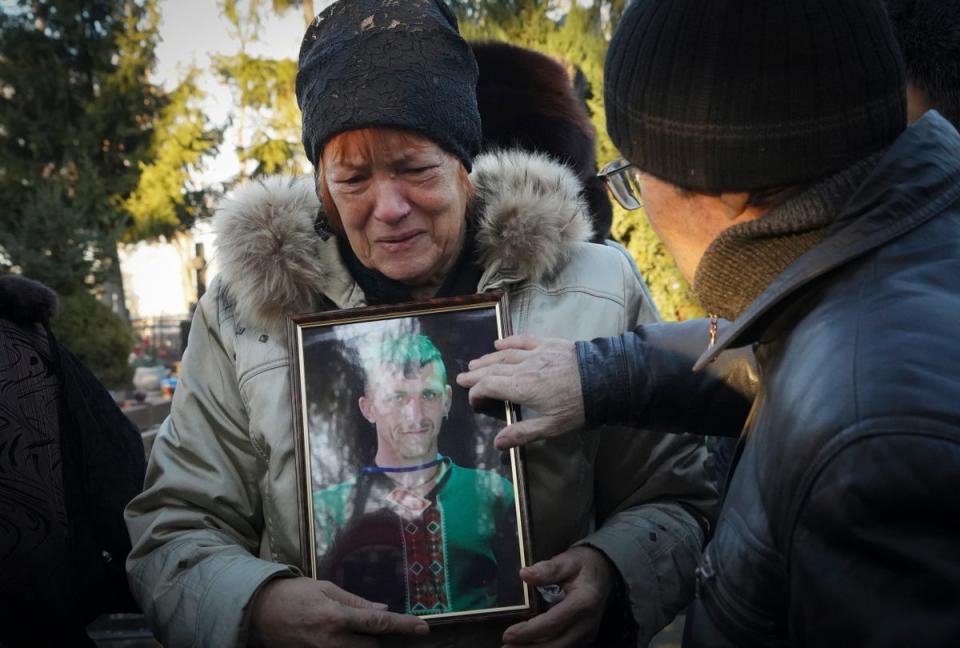Russia suffers third cross-border drone attack in two days
An oil storage tank at an airfield in Russia's Kursk region was set ablaze on Tuesday morning after it was hit by a drone.
The attack came just 24 hours after Moscow accused Ukraine of similar attacks on two air bases at Ryazan and Saratov, emphasising the vulnerability of some of Russia’s most important military sites closest to the Ukraine border.
Roman Starovoyt, regional governor of the Kursk region, said on Telegram: “As a result of a drone attack, an oil reservoir caught on fire in the area of Kursk airport. The fire is being contained.
“All emergency services are working on the spot.”
No one was injured, he added.
Although Kyiv has not formally confirmed carrying out drone strikes inside Russia, Ukrainian presidential adviser Mikhail Podolyak taunted Moscow.
“If something is launched into other countries’ airspace, sooner or later unknown flying objects will return to the point of departure,” he said on Twitter. “The earth is round.”
Britain’s Ministry of Defence said Russia was likely to consider the attacks more than 300 miles (500 km) from the border as “some of the most strategically significant failures of force protection” since invading Ukraine.
Saratov is at least 370 miles (600 km) from the nearest Ukrainian territory, which has raised concerns among Russian commentators that Ukraine might also be capable of hitting Moscow.
Kremlin spokesperson Dmitry Peskov said that Russian authorities will “take the necessary measures” to enhance protection of key facilities.
Moscow blamed Kyiv for the attacks on two air bases deep inside Russia on Monday.

The attacks on the Engels base in the Saratov region on the Volga River and the Dyagilevo base in the Ryazan region in western Russia were some of the most brazen inside Russia during the war.
In the aftermath, Russia carried out another wave of missile strikes on Ukrainian territory that struck homes and buildings and killed civilians, compounding the damage done to power and other infrastructure over weeks of missile attacks.
Approximately half of homes in the Kyiv region remain without electricity, the regional governor said Tuesday, while authorities in the southern Odesa say they have managed to restore power to hospitals and some vital services.
Ukrainian hospitals said they may have to suspend non-vital surgeries because of power shortages.
In a fresh display of defiance from Kyiv, Ukrainian president Volodymyr Zelensky travelled to an eastern city near the frontline, when he visited the eastern Donetsk region.
He vowed to push Russian forces out of Ukraine.
“Everyone sees your strength and your skill ... I’m grateful to your parents. They raised real heroes,” he said in a video address to Ukrainian forces from the city of Sloviansk.

Ukrainian military analyst Serhiy Zgurets said on the Espresso TV website: “It is still too early to say what is at issue here, but the ability of the armed forces of Ukraine to reach military targets deep in the territory of the Russian Federation has a very symbolic and important meaning.”
While the origin of the drones has not yet been verified, if the attacks were deliberate, they may be some of Russia's “most strategically significant failures of force protection”, said the UK’s Ministry of Defence.
They added: “The Russian chain of command will probably seek to identify and impose severe sanctions on Russian officers deemed responsible for allowing the incident.”
According to The New York Times, a senior Ukrainian official said the drones involved in Monday’s attacks were launched from Ukrainian territory, and at least one of the strikes was made with the help of special forces close to the base.
Russia has since responded to Monday’s attacks with a “massive strike on the military control system”.
Meanwhile, a major rift between Hungary and other European Union countries was brewing after Budapest vetoed an €18bn (£15.4bn) financial aid package to Ukraine.
The move exacerbates a dispute over the rule of law in the country and prime minister Viktor Orban’s outlook on Russia’s invasion of Ukraine.
Mr Orban is seen as an ally of the Russian leader Vladimir Putin.
Elsewhere, fellow EU country Latvia shut down a Russian independent television station based in the country after it was described as a threat to national security.
The National Electronic Media Council (NEPLP), Latvia’s media regulator, said the decision to cancel the licence of Rain TV (Dozhd) was taken “in connection with threats to national security and public order”.
“Everyone must follow Latvian laws and respect them,” said the regulator’s chair Ivars Abolins.

